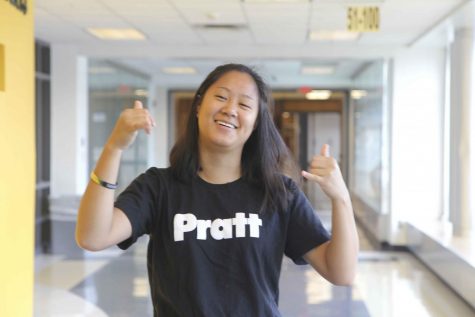A Whole New World
Most of us have ancestors who immigrated to the United States at some point, though some came more recently than others.
Junior Sarah Baghdadi, said her dad studied hard in Syria to come to the U.S. for education.
“My dad is your typical immigrant where he grew up in a family that wasn’t very rich,” Baghdadi said. “He definitely worked his way up to where he is now.”
She said sometimes there is prejudice toward her mother, who is also an immigrant from Syria, for being Muslim and a non-native English speaker.
“I feel like [people] expect her to not understand a word,” Baghdadi said. “Whenever I’m with her and they need to communicate to her, I act as the translator for them. I feel like that’s degrading toward her.”
Sophomore Faith Zeng is another student whose parents are immigrants — they came over from Guangzhou, China. At first they struggled with finances and learning English.
Zeng said because she is Asian, she is sometimes judged for filling many of the stereotypes that come along with being Chinese.
“I think from the outside, people see me as straight-up Asian, but I’m not just ‘Asian,’” she said. “I don’t care about Confucius — I’m Christian. I’ve never eaten dog before, and I have gotten a B. In the end, the impressions others have of me don’t matter. Being Chinese doesn’t make me any different.”
After Zeng’s birth in the U.S., she traveled back to China as a child and lived there for three years. Because of that, she speaks fluent Chinese, and she said she has an accent that makes it hard to pronounce certain sounds, like “th.”
“There would be occasional jokes made about my pronunciation,” she said. “I’m beyond that now, but at the time, I was hurt. Now, I see it as a reminder to appreciate what a wonderful experience I had [in China] and the positive impact it had on my life.”
Baghdadi said her and her parents’ ideas of success align, and she wants to be a general surgeon in the future.
“I think their biggest goal is for me to fulfill my goals,” Baghdadi said. “They want me to be successful in what I want to do. They want me to be a doctor [like] most immigrant parents, but that’s what I chose to do far before they told me I should.”
Similarly, Zeng said her and her parent’s ideas of success don’t conflict with each other. However, because of how her mother grew up, her mom is doubtful about Zeng’s choices in wanting to go into an art field in college.
“My mom isn’t as understanding [of lower grades], and I see her point of view,” Zeng said. “Growing up in a conservatory left her with a great gift in piano but didn’t give her a good general education. She wants me to excel in school and gain what she didn’t have.”
In the end, Zeng said she loves being Asian because she gains perspective about lives in China when she travels.
“There were times when I was younger I wished I was just white instead,” she said. “Thinking about it now, I love being who I am. My life is always filled with amazing Chinese traditional cooking.”
Baghdadi said not to judge others just for immigrating because they are human as well.
“I feel like the fact that we and the government refer to immigrants as aliens dehumanizes them,” Baghdadi said. “We’re all just people in the end — the only thing that differs is the race or ethnicity.”
Zeng also said not to judge and stereotype because everyone has a unique, compelling story.
“It’s not only important but also extremely cool to know their background stories,” Zeng said. “You can gain new perspectives, be more culturally aware [and] connect with others. Don’t categorize a person based on what you see.”

Kaitlin Yu is co-editor in chief of “The Tiger Print.” She appreciates the arts, loves cats and dogs and takes pleasure in wasting her time away by...



